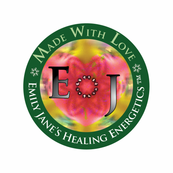- Home
- Emily Jane's Energy Creams; Sprays & Drops
- EJHE Shop
- Bespoke Preparations
- Contact
- Shamanic Healing Therapies
- About
- Testimonials
- Emily Jane's Radio Show
- QHHT®
- Treatments
- Full List of Individual Gem Essences
- Full List of Individual Herb & Flower Essences
- Recipes Index
- The Alchemist's Cookbook Series
- Workplace Wellness
- Wellness @ Work for Self-Employed
- Balance & Wellness Reports and Programmes
- Emily's Vlogs!
- Magical Rejuvenation Range
- Magical Rejuvenation Range
- Vaxx-Poison Eliminator Elixir
- All Love
- Buy the EMF-AI Eliminator Set
- Pregnancy Vaxx-Protector
- Vaxx-Poison Eliminator Elixir
- Buy The Vaxx-Poison Elliminator and Pregnancy Vaxx-Protector Elixirs
- Home
- Emily Jane's Energy Creams; Sprays & Drops
- EJHE Shop
- Bespoke Preparations
- Contact
- Shamanic Healing Therapies
- About
- Testimonials
- Emily Jane's Radio Show
- QHHT®
- Treatments
- Full List of Individual Gem Essences
- Full List of Individual Herb & Flower Essences
- Recipes Index
- The Alchemist's Cookbook Series
- Workplace Wellness
- Wellness @ Work for Self-Employed
- Balance & Wellness Reports and Programmes
- Emily's Vlogs!
- Magical Rejuvenation Range
- Magical Rejuvenation Range
- Vaxx-Poison Eliminator Elixir
- All Love
- Buy the EMF-AI Eliminator Set
- Pregnancy Vaxx-Protector
- Vaxx-Poison Eliminator Elixir
- Buy The Vaxx-Poison Elliminator and Pregnancy Vaxx-Protector Elixirs
